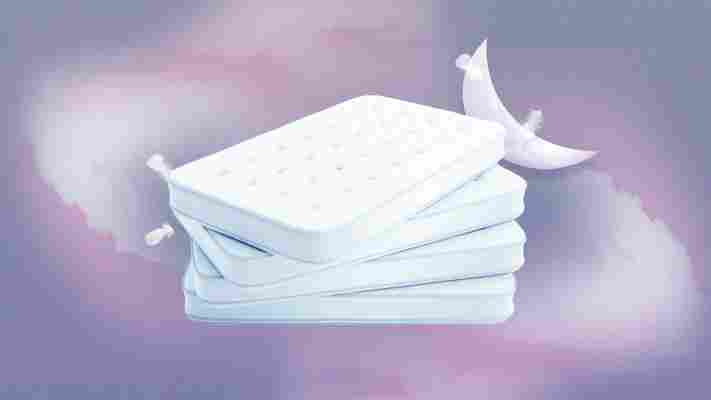15 Best Mattress Brands for Better Sleep in 2021
Nothing gets the z's going quite like sinking into five layers of plush memory foam—but buying the right mattress is easier when you know what the best mattress brands are (or, for millennials, what the best mattress-in-a-box brands are) before making your decision. Once you've got one, you're just a linen bedsheet set and giant tropical houseplant short of a dreamy, Insta-ready bedroom.

We're homing in on everything you need to manifest those eight hours of shut-eye—your mattress being square one. A big-ticket purchase requires research, so we talked to experts to help us answer some of the most googled questions (like, what on earth do we do with the old one?). Then we compared all the top-rated mattress brands to come up with this list. Whether you're a budget-savvy shopper or a self-proclaimed mattress connoisseur, here are the 15 best mattress brands worth your money.
Where should I buy a mattress?
Once upon a time, you'd drive up to a store, flop down on the $3,000 mattresses on display, then pick the one that was a third of the price and have it shipped to your home. Nowadays, buying a mattress is considerably easier—you could simply add one to your Amazon cart along with a book and some toilet paper—but it also means you're grappling with open-ended questions you have to answer for yourself. How thick should my mattress be? Do I even need a new one? Without face-to-face interaction with an expert (or squishing the edges of your new mattress), it can be hard to commit to the first well-packaged mattress in a box that comes with free, two-day shipping. Since you really won't know until it's sitting in your bedroom, when shopping for a mattress online, “it's important to focus on customer service reviews, return policies, and warranties rather than individuals’ comfort reviews,” says Terry Cralle, R.N., and certified clinical sleep educator.
How do I pick a mattress?
A mattress is the most important thing in your bedroom—and it's typically characterized in terms of comfort whether it relieves pressure) and support whether it keeps your spine in a neutral position), says Cralle. “A good mattress should provide comfort, relaxation, and tension relief.”
But don't let the marketing fool you—there's no such thing as a “universal” mattress. It's all about what works for you, which “depends on height, weight, medical conditions, sleep positions, temperature, and comfort preference,” Cralle tells us. Mattresses are available in a range of thicknesses between 6 and 16 inches, and the general rule of thumb is that the higher the BMI, the thicker the mattress should be. “People weighing between 250 and 400 pounds will probably be most comfortable on a mattress 10 inches thick or greater,” she says. “For people weighing over 400 pounds, a 14-inch-thick-or-greater mattress is recommended.”
Another thing to do when buying a mattress is to familiarize yourself with the different features offered (like innerspring, air, or foam—which you can delve into here) and certifications like CertiPUR-US certified (nontoxic foam) and Oeko-tex Standard 100 label (free of harmful chemicals). Cralle says it's also worth researching the latest technologies, like adjustable bases and temperature manipulation, and to sleep track for anything that might improve the quality of your sleep if you're able to do trial runs.
How long should you keep your mattress?
Well...it depends. Experts say mattresses should generally be replaced at least every seven to eight years, but according to Michael Breus, aka The Sleep Doctor, “your body will ‘tell’ you when you need a new bed.” He says that “if you wake up stiff or sore, not from exercise or effort, more than two times a week for more than two to three weeks, you probably need a new bed.” And just as our bodies change with age, so do our mattresses. Over time they lose both support and comfort, so replacing it is necessary to maintain continuous sleep quality. Most manufacturers offer a 10-year warranty that covers defects—and some even offer 25 years or lifetime warranties.
How to get rid of an older mattress?
You've probably seen a stained mattress wrapped in plastic and dumped on the side of a curb, but “if you’re getting rid of an older mattress, it’s best to dispose of it in an environmentally responsible way, like recycling,” says Jeff Chapin, cofounder and chief product officer at Casper. According to The Mattress Recycling Council, about 80% of a mattress's parts can be repurposed; however, mattress recycling is mandatory in only three states: California, Connecticut, and Rhode Island. Still, that shouldn't be an excuse to toss it outside and forget its existence. Even if you don't live in a state that requires mattress recycling, the MRC operates a recycling program known as Bye Bye Mattress, which helps you find a recycling center near you.
Some mattress brands also do the work for you (albeit for a recycling fee), or they have helpful FAQ sections you can consult on what to do with your old mattress. Another alternative would be to look into your local charities or churches to see whether they'll take your old mattresses. Goodwill and Habitat for Humanity are popular donation centers, but you should call ahead to make sure they have space for it. And if you are hoping to give away your mattress, make sure to check the condition beforehand (just saying—no one needs bed bugs in their lives).
Note: Prices below reflect queen sizes. Some reviews have been edited and condensed for clarity.